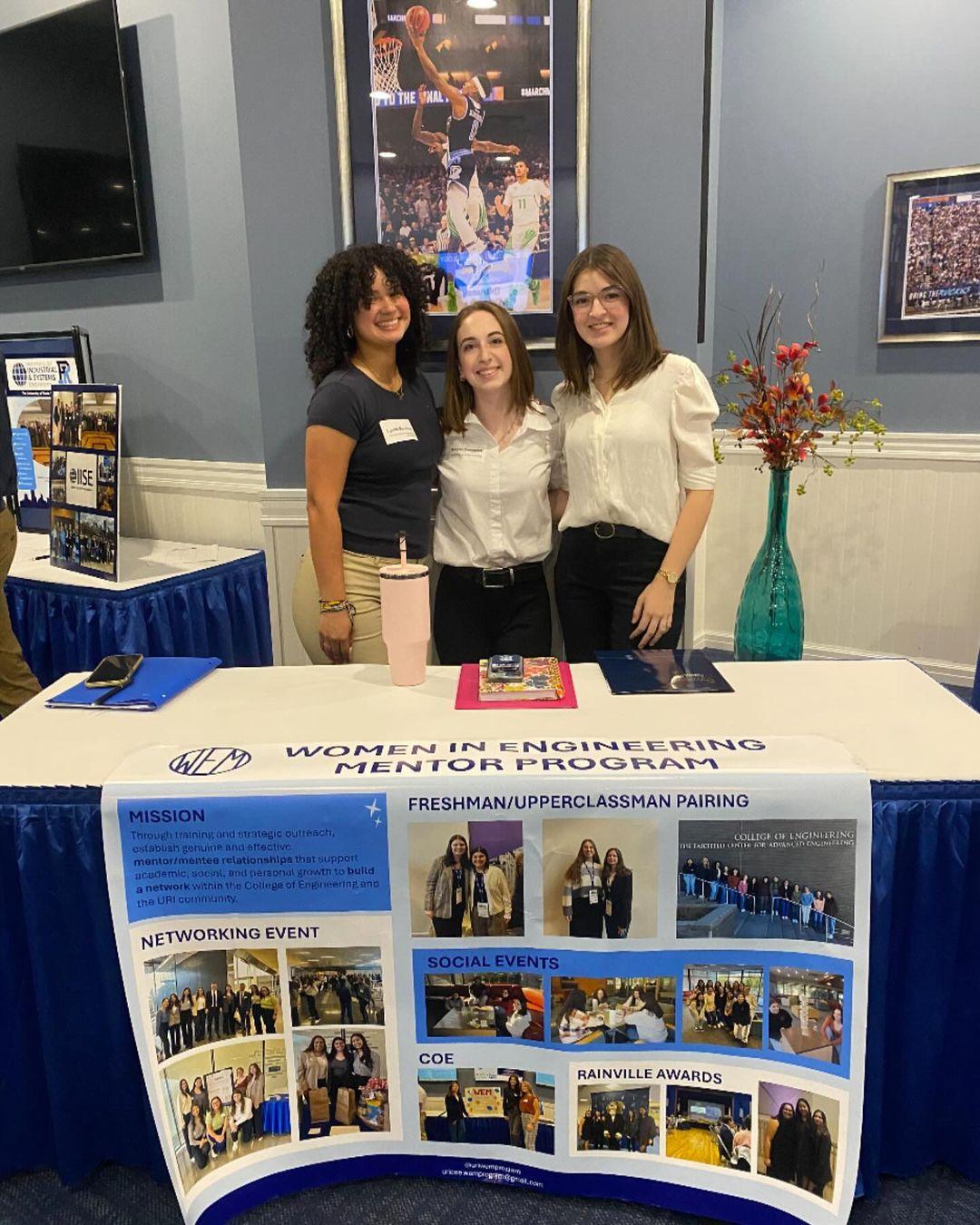With the goal of fostering support, connection and empowerment among women in engineering, a University of Rhode Island mentorship program pairs first-year mentees with upperclassmen mentors.
The Women in Engineering Mentorship program, which spans throughout the academic year, has over 40 mentees and roughly 25 mentors, according to third-year biomedical engineering major Brooke Formanek, the club’s communication chair.
The mentorship club’s financial chair, third-year student Lyneth Mendoza, started in the program as a mentee during her freshman year. A triple major in computer engineering, electrical engineering and applied mathematics, the program has served as a beneficial outlet for her.
“Being able to build a community of girls and just being able to talk to one another and be a support system for one another, I think that’s one of the things I love the most about WEM,” Mendoza said.
As a mentor for the first time last year, Mendoza said the leadership aspect of the program brought her a lot of fulfillment.
“The ability to support somebody and see them start to thrive was something that I felt very proud of and that’s why I continue to be [a mentor],” Mendoza said. “It’s a really great experience to be able to help somebody, because personally, you know yourself how hard it was for you.”
Because the main initiative of the club is to create a space where students can count on one another, mentees are never limited to just one mentor and are always able to talk to other mentors as well, according to Mendoza.
“I know one time when I was a mentee, I went to an event that WEM was holding and I was able to talk to other mentors and make more connections,” Mendoza said.
The mentorship program switched to a student focus in the fall of 2023 after faculty member Michael Lambert, who previously ran the mentorship program , got promoted and could no longer stay in his role, according to Mendoza. Gretchen Macht, an associate professor of engineering, is the new WEM faculty advisor.
While the shift in faculty lea dership has allowed students to have more o f a say in program planning, it has also brought difficulties, according to Formanek .
“We have a bit more trouble because obviously now we don’t have that faculty member to kind of push and get people to come and join us,” Formanek said.
Without a faculty member to provide access to student emails, reaching out to inform students on the program can be difficult, according to Fomanek. The organization has worked to recruit mentees in new ways, including attending club fairs and booths at URI’s engineering kickoff event, which was held earlier this semester.
Since the program’s switch from a faculty-run focus to a student-run focu s, students hold a lot more power regarding the spending of allocated funds from the College of Engineerin g, according to Mendoza.
I n order to further build rapport between female engineers , the program works with the Society of Women in Engineering at URI, according to Formanek. The two organizations network together.
“They [SWE] focus more on the professional side of engineering and we focus more on the well-being of students and wanting to make sure that everyone is okay,” Formanek said.
This collaboration with the SWE has allowed for a stronger community, which ties in well with the program’s overarching goal to build a welcoming support system for female engineers, according to Formanek. Creating a space where female engineering students feel comfortable entering college is essential for progressing in their studies.
“Especially because this is a very male-dominated field, we want to make sure the women engineers can go to someone and not feel overwhelmed,” Formanek said. “We just want someone there for [first-year students] that they can lean on, almost like an older sibling.”
The connections that WEM builds are long term, holding a lasting impact, according to Formanek.
“I still talk to my mentor today,” Formanek said.
To learn more about the program, visit WEM’s Instagram at @uriwemprogram .





